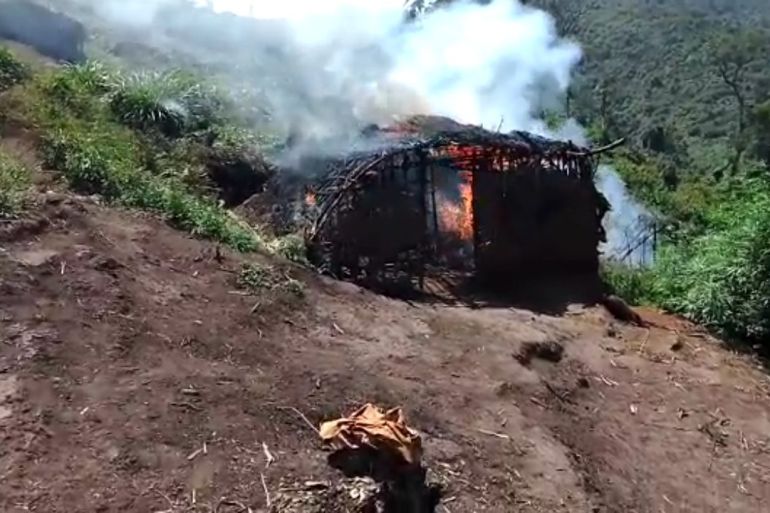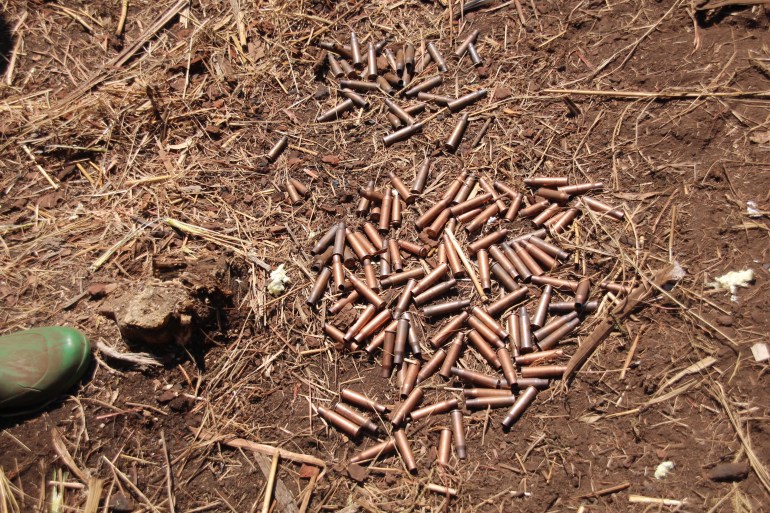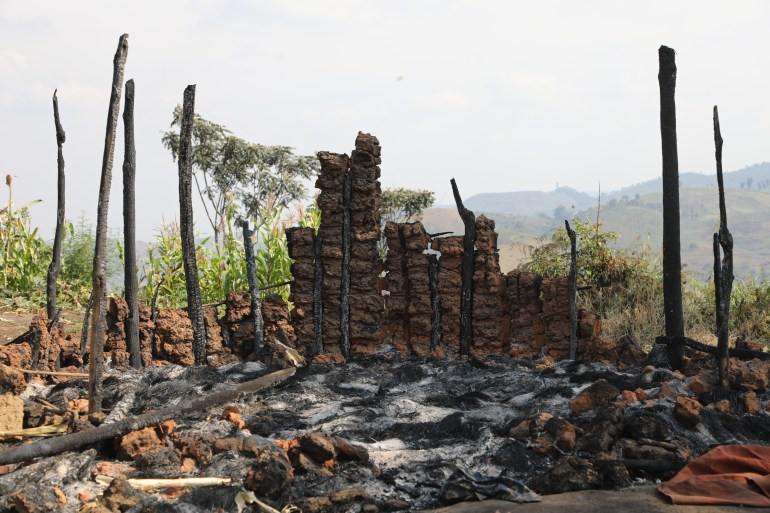Investigation documents murder, rape by DRC national park guards
Report says US, German-funded park guards and DRC soldiers committed atrocities in Kahuzi-Biega National Park for years.

A new report has documented a deadly three-year campaign by park guards and soldiers from the Democratic Republic of the Congo to expel Indigenous Batwa people from their native land in the sprawling Kahuzi-Biega National Park.
The investigation by London-based Minority Rights Group International (MRG), compiled witness testimony from more than 550 people. It discovered that at least 20 Batwa people were allegedly killed by “joint contingents” of park guards and Congolese soldiers in three waves of violent attacks between 2019 to 2021.
Keep reading
list of 3 items‘Good news!’: Ebola outbreak in DRC’s east declared over
Knife-wielding attackers kill dozens in eastern DRC raid
They also reportedly raped at least 15 women during the campaign, which displaced hundreds of Indigenous Batwa from their homes.
The investigation found that the atrocities were committed as park authorities continued to receive conservation funding and material support from the United States, Germany, the Wildlife Conservation Society (WCS) and other international backers.
The Kahuzi-Biega National Park, located in the DRC’s restive eastern region on the bank of Lake Kivu and abutting the border of Rwanda, is a UNESCO world heritage site. It is home to the critically endangered eastern lowland gorilla and hundreds of other rare species.
That funding continued even after those backers were made aware of imminent violence against the Batwa ahead of the first wave of attacks in 2019.
“These international supporters of the park were notified repeatedly that their funding and
material support was translating into massive abuses against civilian populations,” Robert Flummerfelt, author of the report, said in a statement.

“They cannot plead ignorance or claim their support was insignificant,” he said. “The evidence uncovered during this investigation clearly indicates that they were complicit in abuses that likely rise to the level of crimes against humanity.”
It is common across Africa for armed guards, often in conjunction with government militaries, to protect conservation areas from poachers and armed groups.
However, the MRG report criticised international backers for influencing the behaviour of the Congolese Institute for Nature Conservation, the government agency that manages the sprawling 6,000 square kilometre park.
The group broadly accused the donors of “promoting, funding and supporting a militarised approach to conservation that has led the park authorities to employ brutal tactics to keep communities out of the park, resulting in egregious human rights abuses”.
In a statement provided to MRG and published in the report, the WCS said “that WCS condemns any instances of the types of violence
alleged in the draft report to have occurred against Indigenous People. If the allegations are true, these were illegal and horrific military attacks on DRC’s own citizens.”
The organisation said it firmly rejects “the many false accusations and insinuations against WCS” spread throughout the report, including that it supports “a militarized approach to conservation which necessitates the forcible exclusion of communities from protected areas” and “vehemently” denied it was ” complicit in any of the alleged abuses described in the report”.
A history of brutalisation
The Batwa were originally expelled from the area in the 1970s after the park’s creation, but began to return in October 2018. It was after then that the security agencies began “the decades-long process of marginalisation and brutalisation” of them, the report said.
Investigators said the first wave of attacks came between July and August 2019, when three villages were attacked by the Congolese army and the park’s rapid intervention unit, described as an elite group of “heavily militarised and internationally trained” park guards.

At least 60 personnel allegedly opened fire indiscriminately on Batwa villages, shelling them with “heavy weapons (including mortars)”. They went on to burn villages “in part or in whole” as residents fled.
The violence came after park management increasingly threatened the Batwa, promising violence if they did not leave the land.
In the wake of the bloodshed, several Batwa leaders negotiated relocations outside of the park.
Those who remained were again targeted in July 2021, according to investigators, with the onslaught focusing on the village of Muyange, home to between 100-200 Batwa. Guards and soldiers shelled the village with automatic rifles and “at least one belt-fed machine gun” before burning it to the ground.
Among those killed was a man shot “execution-style”, the report said.
Between November and December 2021, seven villages were again targeted. In one instance, witnesses described park guards and soldiers trapping two children inside of a burning home until they burned to death.
Witnesses also described the attackers mutilating bodies, including putting a disembodied head on a piece of wood “apparently to terrorise other Batwa”.
The report further alleges that “paramilitary training and equipment” provided to park guards by WCS, the German-based GFA Consulting Group, and the Maisha Group Ltd consulting group, may have violated the UN Security Council’s arms embargo in the DRC because the council was not given advance notification.
In the statement to MRG, the WCS “said it had no involvement or influence in any training, support, planning or direction of military forces” and its actions were not prohibited under the UN arms embargo in DRC. In a statement provided to MRG, GFA also denied the allegations.
The training was conducted “under biodiversity projects funded by the German and US governments”, according to the MRG investigators.